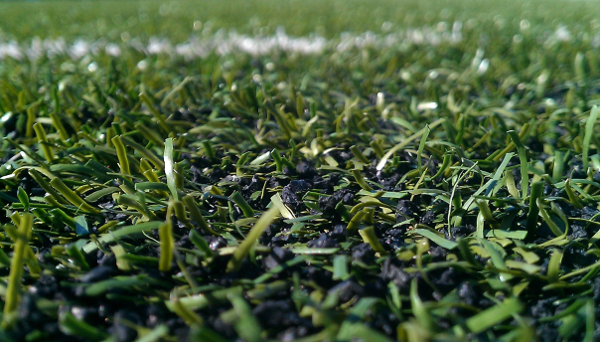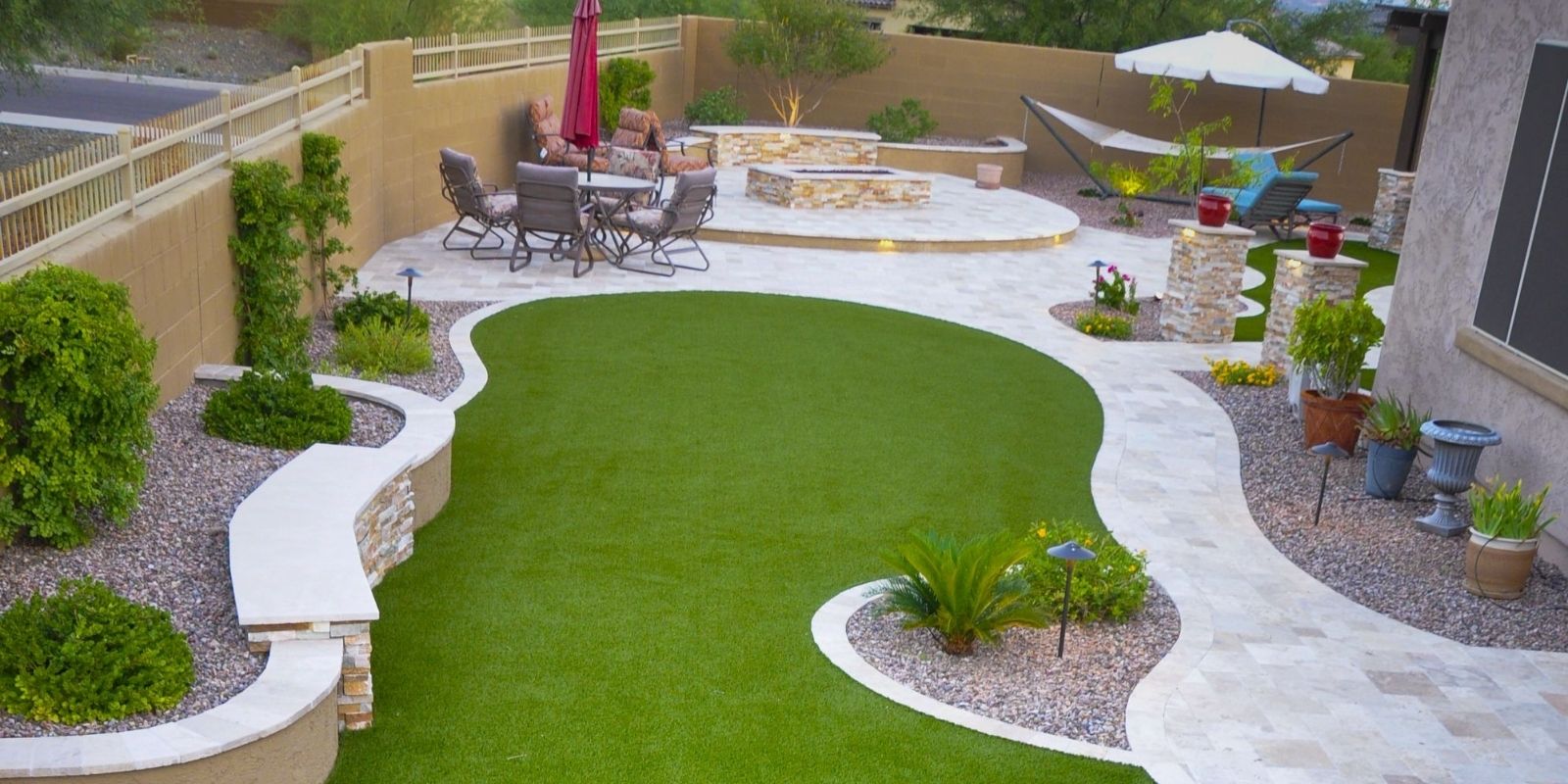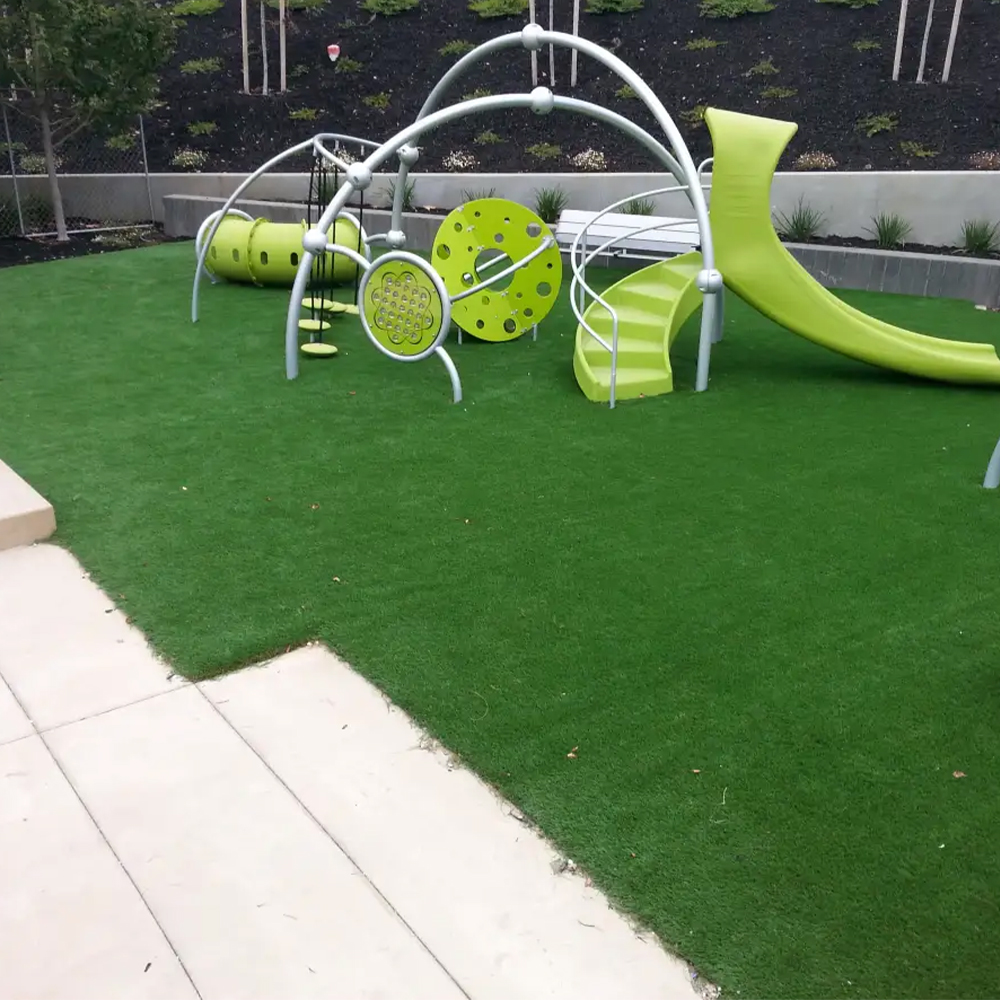Luxury Arizona Turf Installation Solutions for Residences and Commercial Properties
Wiki Article
Delve Into the Environmental Benefits of Opting for Synthetic Grass Solutions
The fostering of synthetic grass solutions presents a compelling chance to address pressing ecological obstacles. By substantially reducing water usage and reducing the application of hazardous chemicals, these alternatives not only advertise sustainable landscaping however likewise shield regional ecosystems.Water Conservation Perks
One of the most significant benefits of fabricated grass is its capacity to conserve water. In contrast, synthetic grass does not need watering, significantly lowering the overall need for water sources.By getting rid of the need for regular watering, fabricated grass contributes to lasting landscape methods and helps minimize the ecological effect of excessive water consumption. Furthermore, the conservation of water expands to the decrease of runoff, which can cause soil erosion and river pollution.
In addition, the installment of synthetic grass permits municipalities and house owners to allot water resources a lot more efficiently, concentrating on essential usages such as drinking water and farming. The shift in the direction of man-made lawn not just promotes accountable water usage but likewise aligns with broader environmental objectives targeted at protecting natural deposits.
As areas significantly prioritize sustainability, the water preservation advantages of synthetic grass offer an engaging situation for its fostering in household and business landscaping tasks.
Minimized Chemical Use
The shift to synthetic grass significantly decreases the reliance on chemical therapies typically utilized in all-natural lawn maintenance. Traditional turf management typically includes the application of herbicides, fertilizers, and chemicals to promote growth and control insects. These chemicals can pose risks to human health and wellness, local wild animals, and the setting, adding to soil and water contamination.On the other hand, synthetic grass eliminates the demand for these damaging substances. As soon as mounted, it needs very little maintenance, mainly consisting of routine cleansing and seldom infill replenishment. This decrease in chemical use not just profits the immediate setting however also contributes to wider environmental security. By decreasing the launch of artificial substances into the community, synthetic turf advertises healthier soil and water systems.
Furthermore, the absence of chemical drainage related to synthetic grass installations helps secure local waterways from air pollution, sustaining aquatic life and maintaining biodiversity. Turf installation phoenix az. As neighborhoods increasingly focus on lasting techniques, deciding for synthetic lawn provides a viable remedy that straightens with environmental conservation objectives. Via this shift, building owners can delight in rich environment-friendly areas without endangering eco-friendly health, paving the way for a much more lasting future
Reduced Carbon Impact

Additionally, the installment of synthetic grass can lead to significant water conservation. Natural grass call for considerable quantities of water for watering, which not just includes in the carbon impact related to water extraction and therapy yet additionally pressures local water resources. On the other hand, synthetic grass requires very little upkeep, needing no watering, therefore significantly reducing water usage and its associated power costs.
Furthermore, the durability of synthetic grass contributes to its reduced carbon impact. With a lifespan of up to 15 years or even more, the demand for regular replacements is decreased, resulting in less waste and reduced power intake in manufacturing and taking care of standard lawn options. Generally, man-made turf presents a sustainable choice for eco aware landscaping.
Environment Conservation
Environment preservation is a vital consideration in the debate over landscape design options, particularly when contrasting man-made turf to all-natural lawn. Natural yard lawns commonly need extensive upkeep, including making use of herbicides, chemicals, and fertilizers, which can adversely affect regional environments. These chemicals can leach into the dirt and rivers, damaging indigenous flora and animals and interrupting local habitats.
Artificial turf gets rid of the requirement for harmful chemicals, consequently shielding neighboring wild animals and keeping the honesty of bordering ecosystems. The installation of artificial grass can lead to the conversion of former turf areas into more biodiverse landscapes, such as pollinator gardens or native plant areas, which can support local wildlife.
Ultimately, the shift to synthetic grass not just saves water and minimizes maintenance initiatives yet additionally promotes a much more harmonious relationship in between human tasks and the native environment, promoting habitat preservation at the same time.
Long-Term Sustainability
Long-term sustainability is an important consider evaluating the advantages of fabricated turf over traditional turf lawns. Among the most significant advantages of man-made grass is its resilience; it can last up to 15-20 years with marginal maintenance, whereas all-natural lawn requires constant reseeding and replacement. This longevity lowers the requirement for constant resources, such as water, fertilizers, and chemicals, which are vital for maintaining a healthy and balanced turf lawn.In addition, synthetic grass adds to a reduction in carbon discharges related to grass treatment devices. Conventional lawns commonly need gas-powered mowers, leaners, and blowers, all of which add to air pollution. Turf installation phoenix az. In contrast, synthetic grass gets rid of the requirement for such tools, advertising a cleaner atmosphere
Additionally, the production of synthetic turf significantly utilizes recycled products, boosting its sustainability profile. As producers take on environment-friendly practices, the environmental impact of synthetic grass continues to lessen.

Verdict
The adoption of synthetic grass remedies provides significant ecological advantages, consisting of considerable water preservation, decreased dependence on unsafe chemicals, browse this site and a reduced carbon footprint. Artificial grass help in protecting all-natural habitats by decreasing land disruption and promoting lasting sustainability through the usage of long lasting materials. Collectively, these variables highlight the possibility of synthetic lawn to contribute positively to ecological wellness and provide a sensible alternative to standard landscaping methods in a significantly resource-conscious globe.In comparison, man-made lawn does not require watering, substantially lowering the total demand for water resources. By decreasing the release of synthetic compounds into the environment, fabricated lawn advertises healthier soil and water systems.
Additionally, the setup of man-made grass can result in significant water preservation. In comparison, fabricated lawn requires marginal upkeep, calling for no watering, thereby considerably decreasing water usage and its associated energy expenses.

Report this wiki page